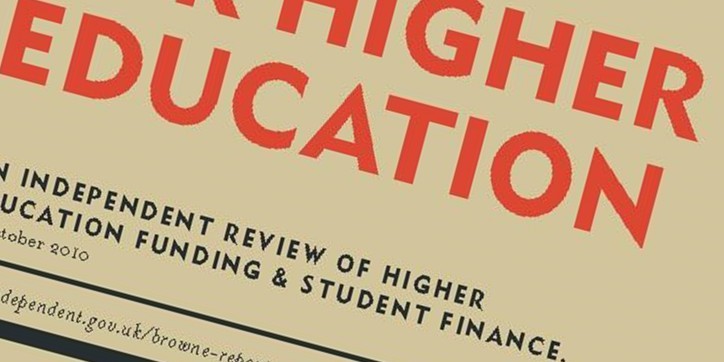Student leaders have attacked a proposal by university chiefs that could see graduates having to pay back as much as £13,000 for their education.
A leaked report from umbrella body Universities Scotland reiterates its view that some form of graduate contribution is the best way to ensure higher education funding remains sustainable in the face of public spending cutbacks.
It adds, “Provided public funding for universities is not cut further, a Scottish graduate contribution could be set at a level which is much closer or lower than the former English level of deferred contribution.”
Students in England pay almost £3300 a year, although under new rules this is being allowed to triple. Implementing the equivalent of the English model in Scotland could see students rack up a bill of £13,000 over the course of a four-year degree course, although those whose salaries remain “relatively low” would not have to pay anything.
Universities Scotland also suggested that if a solution to the funding crisis in higher education was not found quickly, the result might be a substantial reduction in places.
Attila Szomor, vice-president of Abertay University Students’ Association, said the graduate contribution proposal was “absolutely unacceptable” and could serve to scare off potential students. He said Universities Scotland appeared to have been “working behind the scenes and not asking students” for their views.
Mr Szomor was also concerned by the suggestion that one way of coping with financial problems was for universities to cut the number of students they took on. He said it would be wrong to deny places to people with the qualifications to merit them.
Dundee University Students’ Association is also against a graduate contribution. Deputy president Chris Browne described the leaked proposals as feeling like “fees through the back door.”
“As cost-cutting measures take effect, the quality of many courses will diminish,” he said. “It will therefore be very hard to convince students that they should pay more for an education that is of a lesser quality than that which others received for free.
He accused university principals of appearing not to have considered any other funding options, adding, “The government’s green paper did offer a number of funding options and wide-ranging consultation with students. It is surprising to see Universities Scotland suggest that a solution that did not receive public support in England will suit Scotland.
Continued…
“DUSA maintain that education should be free and students from poorer backgrounds will be deterred from a university education if charged at this level. We are not underestimating the scale of the funding crisis in Scotland. However, repeating the mistakes that were made in England is not a solution.
“We are committed to a continued dialogue with university principals and the Scottish education secretary. Dundee students have not been given the opportunity to meet Mike Russell in Dundee, as other institutions have, and would welcome such an opportunity.”
Liam Burns, Scottish president of the National Union of Students, said, “To attempt to bounce people into tuition fees in Scotland by needlessly alarming prospective students is reckless and playing politics with people’s futures.”
Alastair Sim, director of Universities Scotland, said, “There can be no doubt that Scotland’s universities face real funding challenges and urgently need a sustainable funding solution. We urge all political parties not to rule out options for a Scottish solution to university funding until they have had a chance to look at robust numbers on the scale of the challenge and the viability of the options for addressing it.
“We are against upfront fees in Scotland but believe constraints on public funding mean that a modest level of deferred, graduate contribution is likely to be necessary.”
Labour education spokesman Des McNulty accused the Scottish Government of delay and dither while universities were slashing courses and shedding staff.
The Tories support a graduate contribution and spokeswoman Liz Smith said immediate action was needed to invest.
Education secretary Michael Russell said, “The joint work we are currently engaged in with Scotland’s universities will lay out the scale of any gap in funding that might open up in future years, and will report early in March.”
No decision on the future of university funding will be made until after the Scottish Parliament election in May.
